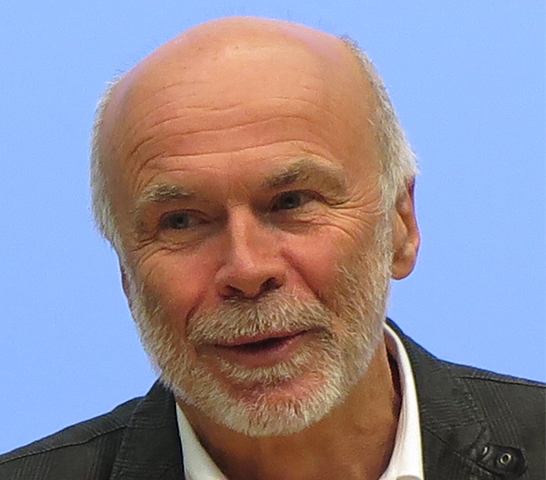Prof. Heinrich Reichert (1949-2019)

Neurex is mourning the death of Prof. Heinrich Reichert, Professor emeritus of Neurobiology at the University of Basel, one of the founders of the Neurex network more than 20 years ago. Heinrich devoted much of his energy and invaluable enthusiasm in raising funds for our network, expressing a remarkable generosity to the benefit of everyone. Deeply convinced that collaborations are a fruitful way to perform research, Heinrich initiated many of them worldwide. In the Upper Rhine Valley, he shared common research projects with his friend and colleague Prof Karl-Friedrich Fischbach (Institute of Biology III, Freiburg). Karl-Friedrich tells us how passionate and friendly Heinrich was. The neuroscience community of Neurex and beyond suffer a tremendous loss with Heinrich’s passing.
PP
Prof. Dr. Heinrich Reichert (25th Sept. 1949 – 13th June 2019)
The passing of Prof. em. Heinrich Reichert in June 2019 was a severe loss to the neuroscience community world wide and especially for researchers at the upper Rhine valley. Heinrich was a networker. He was a co-founder of Neurex and served in our network of neuroscientists in the Upper Rhine Valley for many years as Vice President.
I knew Heinrich since 1974, when we first met in the lab of Prof. Spatz at the Albert-Ludwig University Freiburg, where we both did our PhD work and became close friends. Heinrich loved science and his engagement was an example to all other students. I do remember lively and sometimes hot discussions about scientific and philosophical problems, as well as many social activities. Heinrich loved e. g. theater and participated as an actor in performances of the theater group of the biological institutes in Freiburg i. Brsg.
Heinrich grew up in California as son of Austrian immigrants. Before doing his PhD in Freiburg, he studied Biology, Physics and Chemistry in Karlsruhe. After his dissertation about the visual system and visual associative learning behavior of Drosophila melanogaster , Heinrich decided to go back to the USA. „I saw the lights“ (1) he told me at a visit. He intended to study the escape response of crayfish in Jeffery Wine’s lab in Stanford using electrophysiological methods and was indeed able to unravel the functioning of the underlying neuronal network (2). When in 1982 Heinrich returned as an assistant professor to Europe to the Institute of Zoology in Basel he started to work about sensory integration connected to flight in locust. At this time he also turned his attention towards evolutionary and developmental questions (3,4). From 1986-1991 Heinrich lectured neurobiology at the University of Geneva. This led to the publication of his successful textbook „Introduction to Neurobiology“(5), which was followed by a much extended 2nd edition in 2000.
From Geneva Heinrich returned 1991 as an Associate Professor to the Zoology Institute of the University of Basel. Here Heinrich initiated an especially fruitful phase of research by another shift of paradigm. Heinrich had kept his connections to the Drosophila community alive and now became interested in the question how conserved genes were that function in early brain development (6,7). He and his co-workers found amazing functional 2 conservation between homologues genes important for early brain development in flies, mouse and humans (8,9,10,11).
His developmental investigations also led to an analysis of stem cell proliferation in the brain which resulted among other insights in the discovery of genetic factors that promote the formation of brain tumors (12,13).
In 2006 Heinrich moved to the Biocenter in Basel. At the Biocenter he intensified his lifelong connection to India, especially to the labs of Veronica Rodriguez and VijayRaghavan, with whom he cooperated about the development of the Drosophila olfactory system (14,15). After his retirement in 2015, Heinrich used his relationships to India to frequently travel to Bangalore, where he got deeply involved in teaching and research again and which resulted in many publications, the last three of which were published as recently as 2018 (16,17,18).
Future generations will built on the scientific achievements of Heinrich. Neurex lost one of its most prominent figures and we thankfully not only remember a great scientist and teacher, but also a good friend and inspiring character.
KFF